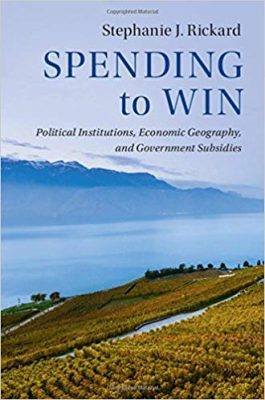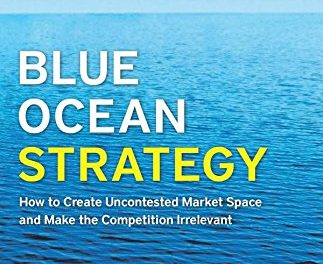 Author: Stephanie J. Rickard
Author: Stephanie J. Rickard
Publisher: Cambridge University Press – 248 pages
Book Review by: Sonu Chandiram
In Australia and in France, purse-string-holding politicians typically provide narrowly-targeted financial assistance to select businesses. Governments within the United Kingdom were even more selective on who got what, by subsidizing particular firms in the 1960s and 1970s, including state-owned companies like British Airways and British Steel.
In contrast, before German reunification in October 1990, the West German government refused to provide subsidies to individual firms. This was, and still is the case today in Finland where broad groups of people, instead of selected groups of businesses or particular companies, receive general assistance from the government.
Similar is the situation in Sweden, as evidenced in the 2008 global financial crisis when its government refused to bail out the ailing automotive industry. Its Prime Minister is quoted as saying in this book that he would not put “taxpayer money intended for healthcare or education into owning car companies.”
The author of this unique work who teaches at the London School of Economics looks into varied relationships involving politicians, business groups, the broad public, and select companies, particularly in the Western world. Stephanie Rickard shows readers how incentives are used to stimulate economic activity in different regions.
She asks and answers questions such as:
- Why do some governments redistribute more narrowly than others?
- Why do politicians selectively target economic benefits, like subsidies to businesses, depending on the way they are elected, like who contributes to their campaign fund.
This book is based on primary information sources such as interviews with government bureaucrats and ministers, and new quantitative data, as well as secondary sources such as industry publications, local media coverage and parliamentary records. ,
Below is the list of eight chapters that constitute this book and serve to provide you an overview of its coverage:
- Who Gets What and Why? The Politics of Particularistic Economic Policies
- The Uneven Geographic Dispersion of Economic Activity
- How Institutions and Geography Work Together to Shape Policy
- Explaining Government Spending on Industrial Subsidies
- The Power of Producers: Successful Demand for State Aid
- Why Institutional Differences among Proportional Representation Systems Matter
- The Policy Effects of Electoral Competitiveness in Closed-List PR
- Conclusion and Implications
The author shows you how institutions interact with economic geography to influence countries’ economic policies and international economic relations. You will note that in different countries, identical institutions have wide-ranging political effects depending on the context in which they operate, and the particular issues, like income inequality, international economic conflict, or representation, prevailing in a given country.
Stephanie Rickard asserts: “money that governments spend on subsidies is money no longer available for other programs” and “governments facing tight budgets often cut programs such as social welfare, in order to fund increased spending on subsidies. Subsidies consequently have serious implications for the regressivity of government spending. It is therefore important to understand shy leaders in some democracies spend relatively more on particularistic economic policies, like subsidies.”
Her basic thesis in this book is that the outcomes of economic policy depend on the way politicians are elected, and the distribution of economic activities in space. How politicians get elected and distribution of economic activities vary from country, as she shows in this book. . She asserts that economic policy cannot be explained by political institutions alone, contrary to conventional wisdom.
Her core thesis therefore is that economic policies result from the interactive effects of economic geography and political institutions, specifically the institutions governing democratic elections. So in order for you to understand the relationship between economic policy and electoral institutions in your own country, you need to gauge basically what most voters want. That could probably help you predict the outcome of the next election in your country. This is definitely a well thought-out, insightful, and highly informative work by Stephanie Rickard.
Author:
Stephanie J. Rickard is an Associate Professor at the London School of Economics.






